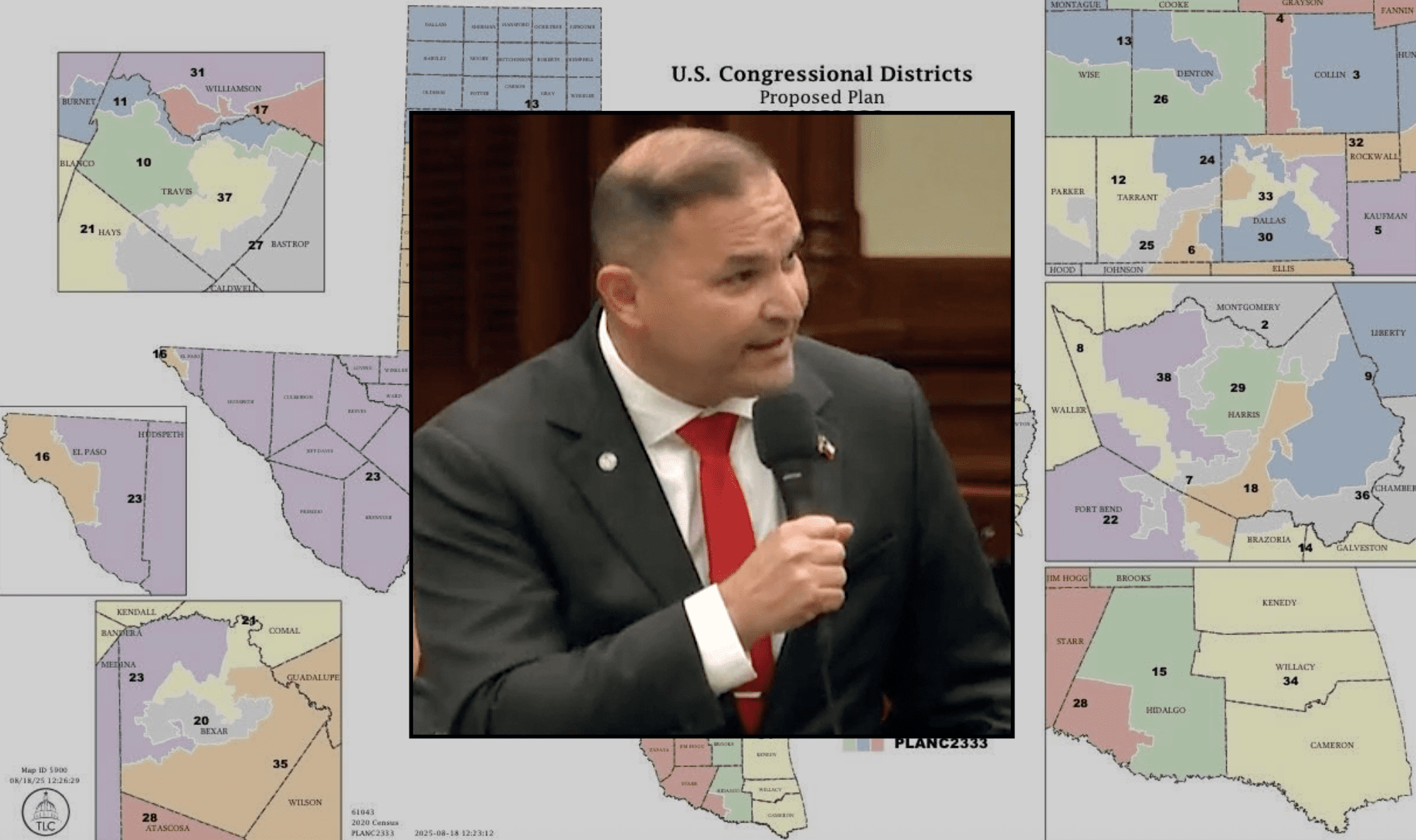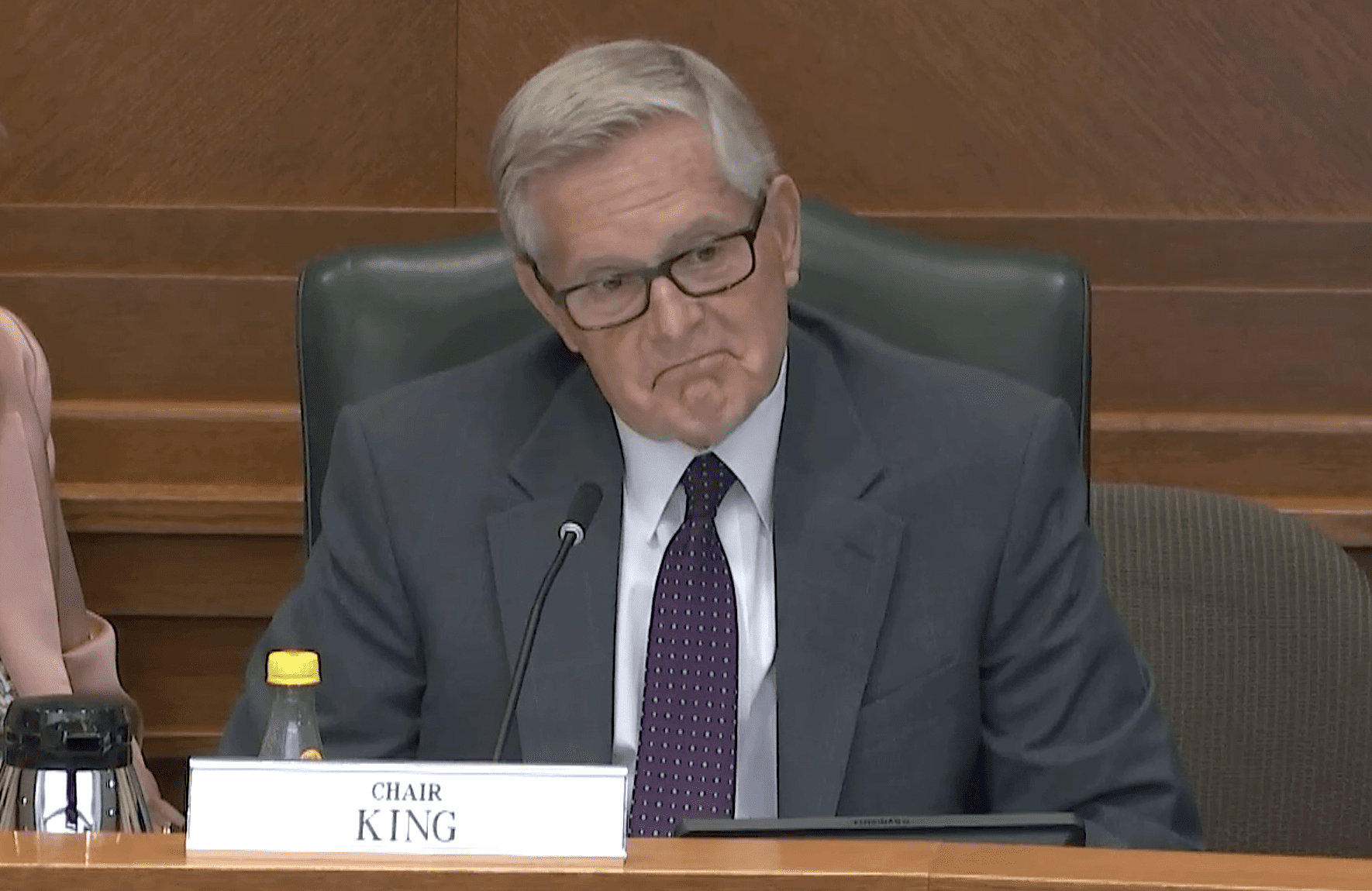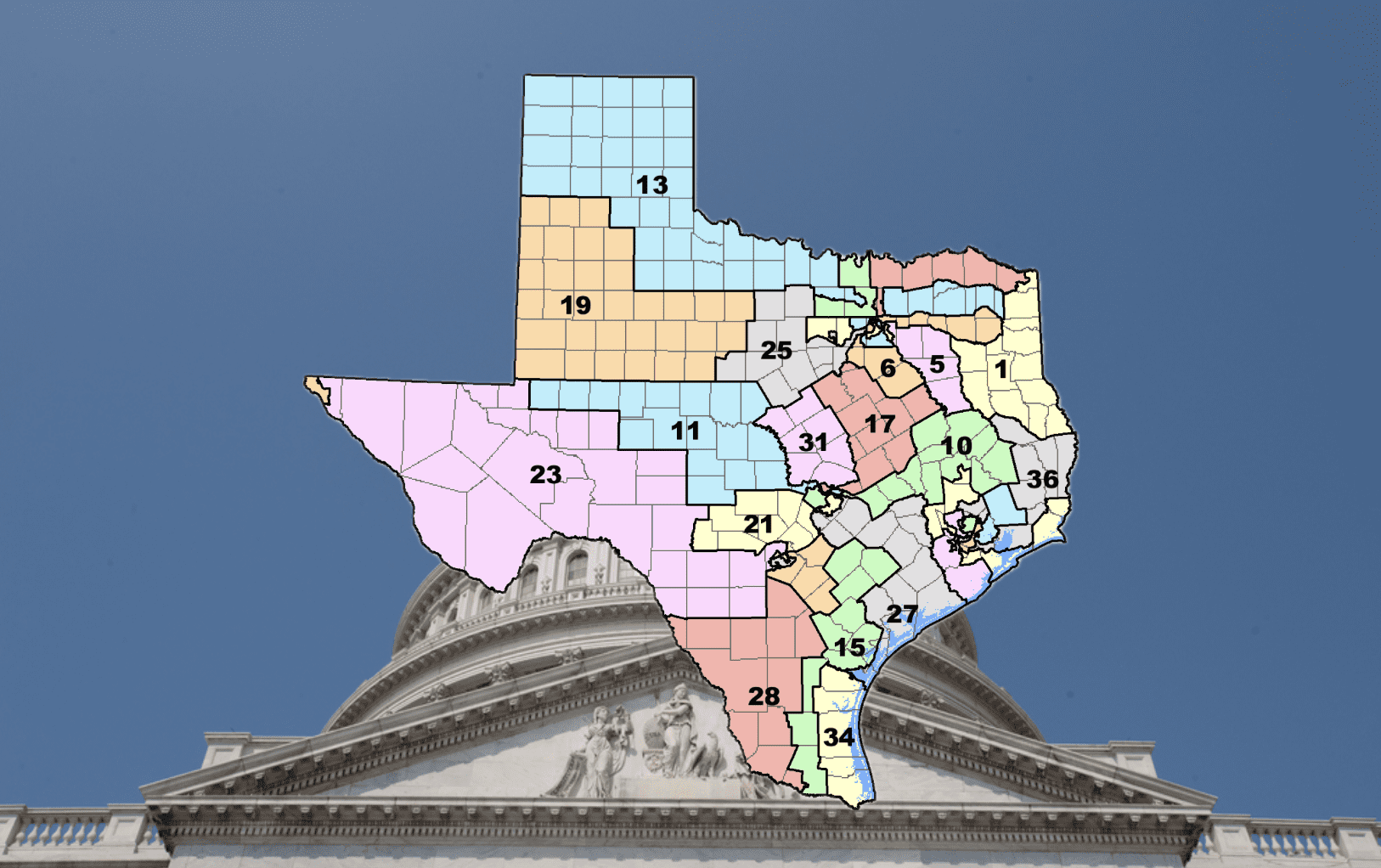Tarrant County has filed a motion to dismiss a Democrat lawsuit challenging new commissioners court districts redrawn to increase Republicans’ partisan advantage.
In June, the Republican-majority Tarrant County Commissioners Court approved a redistricting plan designed to increase the party’s representation on the five-member governing body from 3-2 to 4-1 starting with the 2026 elections.
Democrats promptly sued, claiming that the newly drawn commissioner precinct boundaries were racially gerrymandered to eliminate one of the two existing majority-minority precincts in violation of the Voting Rights Act and the Fourteenth and Fifteenth Amendments to the U.S. Constitution.
A motion filed Friday by attorneys representing Tarrant County rejects Democrats’ claims.
“Tarrant County adopted a redistricting plan that from conception to enactment was an unambiguous, explicit and unabashed effort to increase Republican power and decrease Democratic power on the Commissioners Court,” the document states. “Plaintiffs try to convert this partisan effort into a racially discriminatory scheme.”
The motion explains how the jurisprudential landscape “changed profoundly” in the U.S. Fifth Circuit’s 2024 decision in the Petteway v. Galveston County redistricting case.
“Plaintiffs seek to protect a type of district that the Fifth Circuit held is not protected under Section 2 of the Voting Rights Act,” states the motion filed by attorneys with Public Interest Legal Foundation, the law firm that successfully represented Galveston County in the Petteway case.
Plaintiffs, seemingly unaware of the momentous impact of Petteway, even cite the statute, the 1982 Amendments to Section 2 of the Voting Rights Act (a results claim), that the Fifth Circuit terminated as a cause of action in these demographic circumstances.
Tarrant County’s four commissioner precincts had not been redrawn since 2011.
Precincts deliberately drawn as majority-minority racial coalition districts are no longer protected by the VRA and can be eliminated, according to the motion, “including in a redistricting plan seeking to maximize partisan Republican power.”
“To enact a plan in 2025 with the explicit purpose to protect a racial coalition district and to immunize minority candidates from the rough and tumble of politics in 2025 would brazenly violate the VRA and the Fifteenth Amendment,” the motion continues.
“Deliberately drawn racial coalition districts are not protected. Petteway changed everything.”
Tarrant County’s motion also cites a 2019 U.S. Supreme Court decision establishing that drawing electoral districts for partisan advantage is not unconstitutional.
The Court concluded in Rucho v. Common Cause that “partisan gerrymandering claims present political questions beyond the reach of federal courts.”
Attorneys representing Tarrant County also dismissed Democrats’ claims that the redistricting was motivated by racial intent rather partisan voting patterns.
“If the redistricting plan challenged here was enacted for raw partisan purposes, then Plaintiffs cannot prevail,” the motion states. “If Plaintiffs have failed to provide an illustrative map that disentangles race from politics, then the Supreme Court holds the motion to dismiss should be granted.”
“Plaintiffs’ claims may have had merit over a decade ago,” conclude Tarrant County’s attorneys. “Since then, the jurisprudential ground has shifted underneath them.”
The same shifted legal landscape is impacting congressional redistricting currently being considered by the Texas Legislature.
No ads. No paywalls. No government grants. No corporate masters.
Just real news for real Texans.
Support Texas Scorecard to keep it that way!





